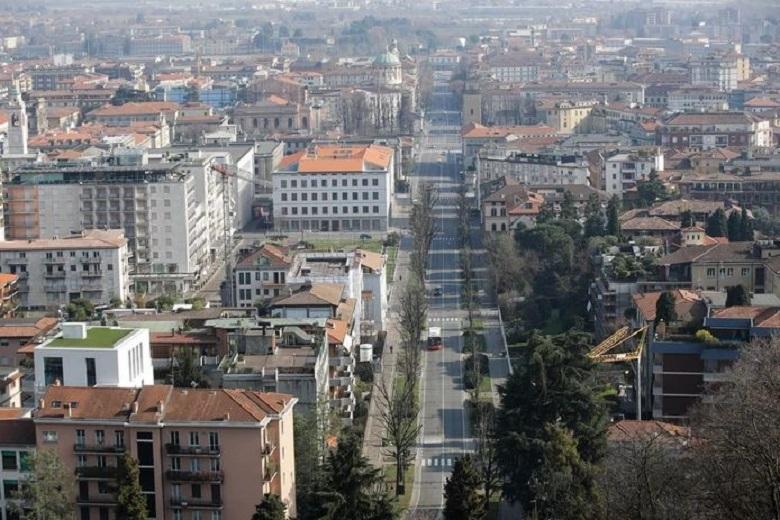The coronavirus turns the badly hit Bergamo into a ghost town. Only the sirens of ambulances and church bells ring in the streets. The northern Italian city cannot even give its dead a final resting place.
A resident (56) woke up at home in Bergamo yesterday morning with a spine-chilling photo of her daughter-in-law. A column of army trucks drives through the dark, deserted streets of the northern Italian city. They transport dozens of coffins with deceased corona patients to other provinces, because local funeral directors cannot handle the flow of the dead. “It is horrible and unreal,” he says. “A nightmare we can’t get out of.”
The city is located in the province of Lombardy, the epicenter of the corona pandemic in Italy. On Wednesday, the number of deaths from the virus in Italy rose in 24 hours by 475 to nearly 3000. About 300 of those died in the Lombardy region. The number of victims may be higher because many people die without being tested for the virus.
Mortuaries are overcrowded, and crematoriums work overtime. In a crematorium, the benches have even been removed to make room for chests. “In front of the cemetery was a traffic jam of hearses. There was a funeral every half hour,” says Van Wezel.
Antonio Ricciardi, the most extensive local funeral director, has already had 600 funerals this month. In a ‘normal’ month, there is an average of 120, he says in the British newspaper The Guardian. “A whole generation died in just over two weeks. Because many of our employees are also ill, we don’t have enough people to transport bodies.”
Fifteen army trucks and fifty soldiers have been deployed to relieve burial sites and crematoriums in the city. When the deceased is cremated elsewhere, the ashes are returned to Bergamo. Marten de Roon, a footballer of the Italian club Atalanta Bergamo, tweeted a few days ago about the surreal situation in his city: “The streets are empty. All you hear is the sound of ambulances and the church bells ringing for everyone who has passed away.”
Silence and grief
There are no people on the balconies who cheer each other up. Only silence and mourning fit here. “The sirens of the ambulances that regularly interrupt the peace that prevails here, bring me heartlessly back to the horrible reality of the moment.”
Businesses and schools will remain closed after April 3, the government announced. It is not known for how long. Sports minister Vincenzo Spadafora told the RAI channel that there might be a ban on all outdoor activities, such as jogging. “If the call to stay at home is not followed up, we will be forced to impose a total ban.”
More aggressive
Some people have even been inside since March 8. Anyone who comes out for no good reason is considered a criminal. “People are becoming more aggressive.” And “If everyone stays neatly inside, we will get the coronavirus under control sooner, and this already long house arrest will end sooner.”
Attilio Fontana, governor of Lombardy, warns that doctors and nurses are at their borders. “I am concerned that they will succumb physically and psychologically. That would really be a disaster. Unfortunately, the number of infections does not decrease. Soon we will no longer be able to treat the sick.” Fontana enlists the help of retired doctors and nurses.
There is a shortage of coffins, as well as respirators and beds in the intensive care unit. The construction of an emergency hospital in Bergamo has been halted. So-called because there is not enough staff. Skeptics think that Lombardy has turned off the money to finance a new hospital in Milan, where prominent figures can be treated. “I don’t know where it will end,” says the resident. Fortunately, a lot of good things are happening. There are fundraisers, children make drawings with a rainbow, and the text ‘everything will be alright’. The strong sense of togetherness is fantastic. The inhabitants of Bergamo are persistent. They want to recover.”
